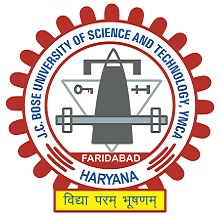

Jawaharlal Nehru University - Admission
JNU Admission Process 2024: Unveiling Educational Opportunities
Overview
The gateway to Jawaharlal Nehru University (JNU) for the academic year 2024 is currently accessible, with the admission process in full swing. Garnering recognition as the 2nd best university in the 'University' category and securing the 10th position overall in the NIRF 2023 Rankings, JNU stands as a beacon of academic excellence. Presently, JNU houses nearly 20 schools and study centers, providing a diverse array of over 100 courses across undergraduate (UG), postgraduate (PG), and doctoral levels.
Diverse Specializations
Jawaharlal Nehru University boasts a rich academic tapestry offering courses in various streams, including Arts, Technology, Management, and Science, catering to the diverse interests of aspiring students.
Entrance-Based Admissions
JNU maintains an entrance-based admission system for its courses. Specifically, admission to BA (Hons.) in Foreign Languages, BSc-MSc Integrated Programme in Ayurveda Biology, and Certificate of Proficiency courses hinge on CUET-UG scores. For PG courses, CUET-PG scores, along with select national-level exams, serve as the criteria for entry.
Program-Specific Admission Criteria
Diversifying its approach, JNU considers JEE Main scores for BTech courses and CAT scores (conducted by IIMs) for MBA admissions. Additionally, CUET-PG scores are accepted for various programs, including MA, MSc, MCA, MPH, MTech, Post Graduate Diploma, and Advanced Diploma courses. Notably, admission to the MSc in Biotechnology and MSc in Computational Biology Programme for the year 2023 requires GAT-B scores.
JNU Admission 2024: Eligibility & Selection
In addition to considering CUET-UG scores, JNU acknowledges JEE Main scores for admission to BTech courses. MBA admissions at JNU hinge on the CAT score, a standardized test conducted by IIMs. Moreover, CUET-PG scores are accepted for entry into MA, MSc, MCA, MPH, MTech, Post Graduate Diploma, and Advanced Diploma courses. For the JNU admission process in 2023, prospective students applying to the MSc in Biotechnology and MSc in Computational Biology Programme must submit GAT-B scores. The subsequent section provides a comprehensive list of JNU courses, outlining their respective selection processes and minimum eligibility criteria.
|
Popular Courses |
Eligibility & Selection Criteria |
|
|
BE/BTech |
Class 12 from a recognized board with a minimum aggregate of 75% |
JEE Mains + JoSAA/DASA counselling |
|
BA (Hons) |
Class 12 from a recognized board with a minimum aggregate of 45% |
CUET-UG |
|
MBA |
Graduation with a minimum aggregate of 50% |
CAT + GD & PI |
|
MTech |
Graduation with a minimum aggregate of 55% |
CUET-PG |
|
MA |
Graduation with a minimum aggregate of 45% to 50% |
CUET-PG |
|
MSc |
BSc with a minimum aggregate of 55% |
CUET-PG/ GAT-B (Biotechnology & Computational Biology) |
|
MCA |
BCA or any other Bachelor's degree with a minimum aggregate of 55% |
CUET-PG |
|
Certificate |
Class 12 from a recognized board with a minimum aggregate of 45% |
CUET-UG |
|
PhD |
Master's degree with a minimum aggregate of 55% |
Computer-Based Test (CBT)/CSIR/UGC NET |
JNU Admission Process 2024: A Comprehensive Overview
The Jawaharlal Nehru University (JNU) admission process for 2024 emphasizes an entrance-based approach. Commencing in 2022, CUET-UG and CUET-PG have become the preferred avenues for admission to various undergraduate (UG) and postgraduate (PG) courses at JNU. Notably, national-level exam scores, such as JEE Main for BTech courses and CAT for MBA courses, are also considered in the evaluation of applicants.
Selection Criteria and Process Stages:
Step 1: JNU Application Process 2024
The initial stage involves online registration through the official JNU website (jnu.ac.in). Aspirants applying through CUET should have previously chosen JNU as a preference during the CUET application process. Awareness of key dates is crucial to meeting the JNU application deadline.
Step 2: Selection Rounds/Release of Selection List
Upon the completion of the application process, candidates are shortlisted based on their entrance exam scores (applicable to MBA & BTech). Subsequently, shortlisted candidates participate in selection rounds, including group discussions and personal interviews, culminating in the release of a final list or merit list for CUET-based admissions.
Step 3: Counselling
Selected candidates (excluding MBA applicants) participate in JNU counseling for course admission, encompassing verification and seat allotment processes.
Step 4: Admission Confirmation
The final step involves document verification for selected candidates, followed by the payment of stipulated fees to secure their admission.
JNU CUET Counselling Process 2024: A Closer Look:
Candidates who appeared for CUET-UG can apply for JNU UG and Certificate of Proficiency (COP) courses, including BA (H) in Foreign Languages, BSc-MSc integrated course in Ayurveda, and COP programmes. Admission is granted to specific schools, such as the School of Language, Literature & Cultural Studies and the School of Sanskrit & Indic Studies, based on CUET scores and deprivation points. The detailed steps for the JNU admission process through CUET are outlined below:
Step 1: Register on the JNU official website (jnu.ac.in) to create login credentials.
Step 2: Log in with the ID and password to complete the application form, including document uploads, including the CUET scorecard.
Step 3: Carefully review and submit the form.
Step 4: Post-registration, merit lists are released, and accessible online using the application number and password.
Step 5: Confirmed candidates secure their seats by paying the required fee, as specified by the university.
For further details on fee payment and acceptance of admission offers, refer to the provided table on the pre-enrolment portal during the application process.
|
Type of Course |
Fee |
|
Undergraduate |
INR 268 |
|
Certificate of Proficiency |
INR 219 |
What documents are required during UG & COP admission/registration?
The documents to be submitted (in original) at the admission counter in an envelope during registration/admission are as follows:
- Provisional Certificate of the qualifying examination
- Migration certificate
- Character Certificate
- Anti-ragging Affidavits
- Discontinuation certificate
